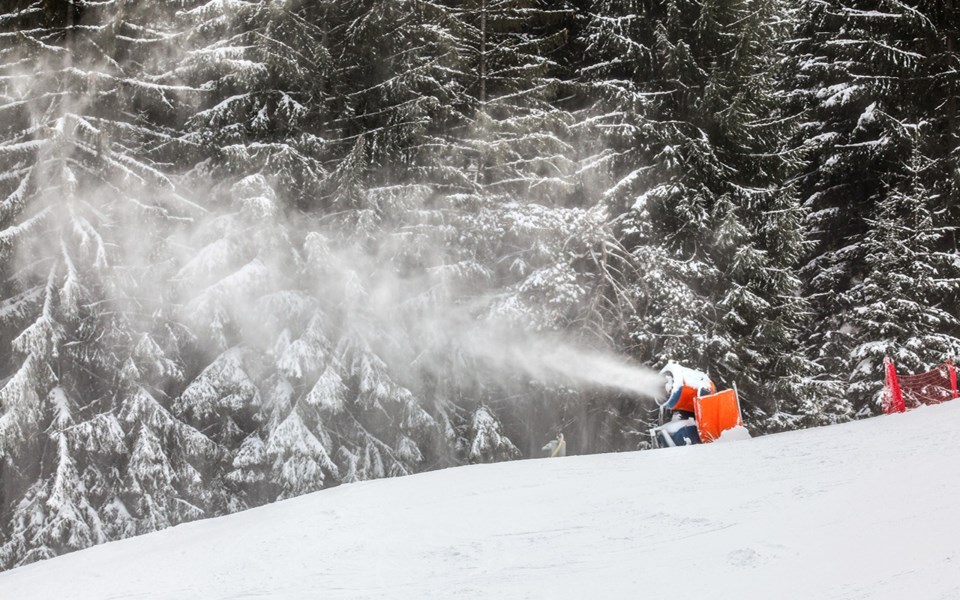ASPEN, Colo.—Last week a federal judge ruled that the federal gover=nment must at least acknowledge the climate change impacts created by fossil fuels when deciding whether to issue oil and gas leases in Wyoming.
In Colorado, an environmental group is asking a parallel question about ski areas and snowmaking. Wilderness Workshop argues that the U.S. Forest Service—the landlord for most of the ski areas in the West—needs to do a comprehensive analysis of the impacts of increased water diversion from rivers to endangered fish in the Colorado River, changes in runoff patterns, and increased energy use associated with the expansion of snowmaking.
"Climate impacts are often meaningless on a project-level, but can be significant on a program level," said Peter Hart, staff attorney for the group.
The Forest Service has approved expanded snowmaking at Vail, Copper Mountain, Steamboat, and other ski areas in Colorado in recent years, and now it is looking at allowing expanded snowmaking and terrain on Aspen.
Ski areas have been adding snowmaking almost annually for decades to remove the uncertainties of weather. The warming climate will have a general effect of shortening the ski season and more often replacing snow with rain.
In response to the lessened reliability of natural snow, the ski companies "need to use more diesel fuel and coal to generate the electricity to pump water to the snow guns and fan it out over the slopes," said the Wilderness Workshop. "They rely on diesel-powered snow cats to spread the snow into a skiable surface."




